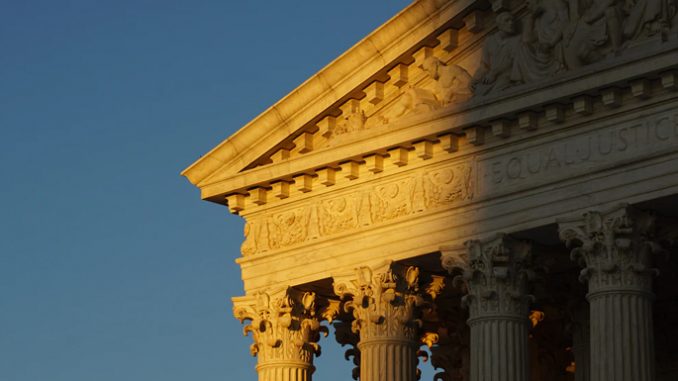
On March 11, 2025, the Supreme Court agreed to hear Chiles v. Salazar this fall, The case challenges a Colorado law infringing on the free speech rights of a licensed Christian counselor who provided “conversion therapy” for minors confused about their gender identities.
Given Chiles’ potential impact on free speech and, ultimately, on religious freedom, this column reviews its history. It then considers its possible impact, not just on counselors but also on minors and their families who are banned from engaging in “conversion therapy” from a Christian perspective.
Chiles v. Salazar
Kaley Chiles is a practicing Christian and licensed counselor who believes people are best off when they live consistently with God’s design, including their biological sex. Many of Chiles’ clients seek her help because they view their faiths and relationships with God as the basis for understanding their identities. While Chiles “never promises that she can solve these issues, she believes clients can accept the bodies that God has given them and find peace.”
Chiles questioned Colorado’s 2019 Minor Conversion Therapy Law, one of twenty-three similar statutes nationally banning mental health professionals from what it describes as attempting to change minors’ self-proclaimed sexual orientations or gender identities, regardless their birth sexes, during counseling. Yet, the law permits, tacitly encouraging, conversations providing “[a]cceptance, support, and understanding for…identity exploration and development, including…to a person undergoing gender transition.”
Violations of the law can subject counselors to penalties, including $5,000 fines and the loss of their licenses.
When Chiles challenged the law in December 2022, a federal trial court rejected her motion for a preliminary injunction to prevent its enforcement as infringing on her First Amendment rights to the free exercise of religion and speech because she failed to demonstrate the likelihood of success on the merits of her claim.
On appeal, a sharply divided Tenth Circuit, in its September 2024 two-to-one order, affirmed in favor of Colorado. The majority agreed that the trial court did not abuse its discretion because state officials have the authority to regulate the professional conduct of mental health providers involving minors, as doing so only incidentally involves speech. Also, the panel did not think the law lacked neutrality toward religion as it focused on what it described as preventing the vaguely defined harmful impact of such conversion therapy, ignoring evidence to the contrary, rather than how it restricted religious freedom.
The dissent raised two distinct but intertwined issues.
First, the judge questioned how the court could interpret licensed counselors’ comments in therapy sessions as conduct rather than speech.
Second, the judge raised a topic the panel did not address, asking “whether a court should treat as ‘science’ the pronouncements of prestigious persons or organizations [such as the American Psychological Association] that are not supported by sound evidence” amid differing perspectives on whether conversion therapy is beneficial.
Reflection and analysis
As delineated by the Supreme Court, Chiles addresses “[w]hether a law that censors certain conversations between counselors and their clients based on the viewpoints expressed regulates conduct or violates the Free Speech Claus.” Chiles will be represented by Alliance Defending Freedom, a notable law firm that “advances every person’s God-given right to live and speak the truth.”
Having refused to hear an appeal in a Ninth Circuit case from Washington sixteen months ago over strong dissents by Justices Thomas and Alito, the Supreme Court will now resolve the split between federal circuits over whether banning “conversion therapy,” often identified as “talk therapy,” involves conduct or speech; Justice Kavanaugh also dissented but did not author an opinion.
Conversely, the Third Circuit, although upholding New Jersey’s ban on “sexual orientation change therapy” for minors, treated it as speech, not conduct. The Eleventh Circuit subsequently struck down a similar ban in Florida, finding that therapists’ free speech rights outweighed the state’s concern to limit what it considered potentially harmful conduct associated with such counseling.
Chiles is the third recent controversy in which Colorado faces Supreme Court scrutiny over attempting to force Christians to communicate messages inconsistent with their beliefs.
In 2018’s Masterpiece Cakeshop v. Colorado Civil Rights Commission, the Justices emphasized that officials could not compel a baker to prepare a cake for a same sex couple because doing so violated his free speech rights.
Similarly, in 2023’s 303 Creative v. Ellenis, the Court ruled that the Civil Rights Commission could not require a Christian wedding website designer to engage in compelled speech by offering her services to a same-sex couple because doing so would have violated her religious beliefs. Citing 303 Creative Chiles’ petition to the Supreme Court acknowledged that this is not Colorado’s first attempt “to regulate speech ‘in ways that align with its views but defy [an individual’s] conscience about a matter of major significance.’”
While the Supreme Court will focus on free speech in Chiles, its decision will undeniably impact the free exercise of religion, apparently a matter of little concern to Colorado officials.
For example, since June 2024, federal trial courts twice rebuffed efforts of educational officials to deny faith-based schools opportunities to participate in programs of general availability due to their Christian beliefs on sexuality. In so doing, Colorado violated the Supreme Court’s prohibition against denying aid to religious institutions and believers solely because of their faiths, an approach the Justices rejected as “odious to our Constitution.” Consequently, a key issue in Chiles is whether Colorado, relying on questionable science in supporting, if not encouraging, “transitioning” for minors, is infringing on religious freedom by preventing the psychologist from verbally offering advice to clients who freely seek her counsel because she does so from her Christian worldview.
At Chiles’ heart is whether counseling sessions constitute speech, as the counselor contends, or action, as state officials argue. The Supreme Court must clarify this distinction to determine whether officials in Colorado, and jurisdictions with similar laws, can continue to trammel the First Amendment speech rights of counselors by attempting to limit them to communicate only state-approved points of view.
Legislatures certainly have the authority to regulate counselors’ professional activities. Yet, as applied to minors experiencing confusion about their identities, it is unclear how legislators can, as the dissent at the Tenth Circuit questioned, treat speech as conduct, especially given Colorado’s poor track record before the Supreme Court. Further, one must ask which is more harmful: allowing confused minors to seek voluntary assistance that may help them, or limit the judgment of professional counselors in dictating that they can only support, rather than question, children who may opt for irreversible medicinal treatments and surgeries. It seems caution is in order in light of testimony from growing numbers of individuals who regret having “transitioned”.
Expectations are that the Justice Department under President Donald Trump will support Chiles. The administration’s backing, combined with precedent (such as 303 Creative and Masterpiece Cakeshop striking down compelled speech), suggests there is reason to be optimistic that counselors will be able to use their judgments to talk as they deem appropriate to those voluntarily seeking their assistance.
If you value the news and views Catholic World Report provides, please consider donating to support our efforts. Your contribution will help us continue to make CWR available to all readers worldwide for free, without a subscription. Thank you for your generosity!
Click here for more information on donating to CWR. Click here to sign up for our newsletter.








